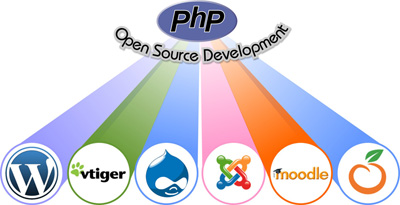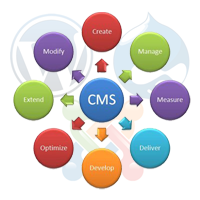PHP, CMS
A content management system (CMS) is a computer application that allows publishing, editing and modifying content, organizing, deleting as well as maintenance from a central interface. Such systems of content management provide procedures to manage workflow in a collaborative environment. These procedures can be manual steps or an automated cascade. CMSs are often used to run websites containing blogs, news, and shopping. Many corporate and marketing websites use CMSs. CMSs typically aim to avoid the need for hand coding, but may support it for specific elements or entire pages.
CMS
WordPress
Word press is the most popular blogging system on web that provides the service for free and open source blogging. It is also a content management system (CMS) based on PHP and MySQL. Plugin architecture and template system are some of its most popular features. More than 16.7% of Alexa Internet’s “top I million’ websites use WordPress. Word press also manages 22% of all new websites.
Joomla
Joomla provides the beauty of CMS and the flexibility of building a custom application around the CMS. Its community support is just incredible. Joomla is very fast and efficient. With it, you can have an e-commerce portal or social networking site developed and running in just a couple of months. The readymade plugins for e-commerce tools, forums, chat applications and blogs are a great advantage to developers.
Drupal
Drupal is a free and open source CMS framework used as a backend system. It is written in PHP and used for most high-end websites globally. It can find applications in diverse portfolios like personal blogs or even websites of corporate houses or the government. Knowledge management and business collaboration are efficiently used with Drupal.

